Openers prepare unexpected twist to Broad’s final chapter
The day began with the sun shining and Stuart Broad being feted by friend and foe. It ended amid gloom with England flat, Broad wicketless and Australia striding towards an unlikely victory.
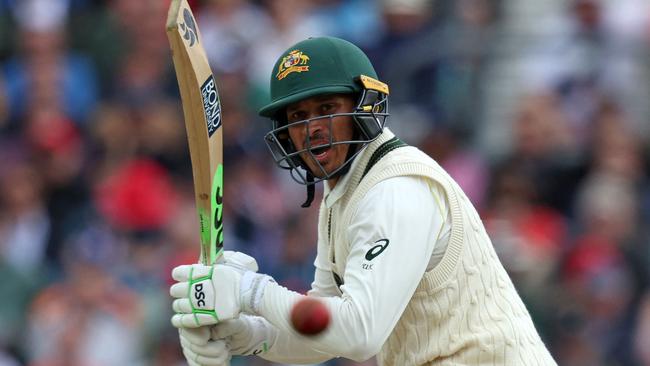
“Who writes your scripts, Beefy?” Graham Gooch once asked incredulously of Ian Botham, during the all-rounder’s heyday. With two days stretching ahead and a mighty lead in the bag, the question might well have been asked of Stuart Broad at the start of play, as he contemplated a glorious last hurrah. Then came Australia’s openers, keen to pen a rather different ending to this series, one that would send Broad into retirement with an Ashes defeat rather than the victory he craves.
The day began with the sun shining and Broad descending the steps of the pavilion to an Australian guard of honour and rousing reception from an expectant crowd, many wearing white bandanas as a mark of respect.
It ended in the gloom and rain with England looking flat, Broad wicketless following two bland three-over spells and Australia striding confidently towards an unlikely victory after Usman Khawaja and David Warner had posted the highest opening partnership of the series.
With all the focus settling on Broad after the confirmation overnight that this would be his last match, there was also much for Khawaja and Warner to play for. Both are playing their last Ashes Test in this country and Warner’s immediate future is at stake, too.
In possession of the shirt, Warner’s desire to get through to Sydney in the new year is in his control, and he looks determined to make the most of it. He has never made a century in England and has enough bad memories of Broad in the last two series here to dearly want to turn the tables on his old rival in their final meeting.
When rain brought an early close, both openers were undefeated – Khawaja on 69, Warner on 58 – and Australia had marched to 135 for no wicket. It left them 249 runs adrift from what would be the second highest run-chase in their Test history, so completing the CV for many of their champion players and rendering the “what might have been” narrative after the Old Trafford rain irrelevant. Having looked as though they had checked out from the series on the third day, they put in a far more convincing performance on the fourth.
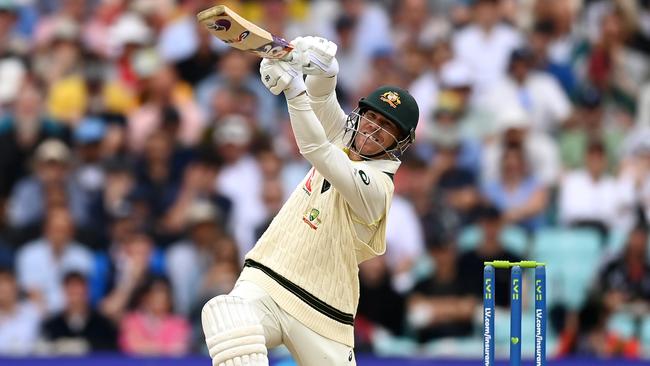
England’s desire to bat on through the third evening and into the fourth morning gave rise to the suspicion that their second innings had fallen short of where they wanted to be. As at Edgbaston, a skittish second half of the innings – they lost their last six wickets for 63 – left the door ajar rather than slamming it shut, as it should have been. With the pitch having lost much of its pace, the ball now 38 overs old and Moeen Ali clearly short of full fitness, after his groin injury, Australia left the Oval far better placed than when they arrived.
The scenes at the start are worth retelling, as down the stairs Broad and James Anderson came for one last time together. They will be linked for ever in the history books, but their immediate paths will diverge after this match, Broad to the commentary box, Anderson to try to forge his own suitable ending. The Broad family were all in attendance and his last dance awaited.
A perfect scene, then: sun out, the ground full and the Australians lining up to welcome Broad to the arena for one final time. After briefly interlocking their arms, Anderson duly hung back to allow Broad an entrance on his own. The Aussies then waited for Anderson to come through but the Lancastrian demurred – retirement, after all, is not on his mind.
The welcome from the crowd for Broad was warm and generous and sustained, and soon they emitted a roar, too, when he swung Mitchell Starc into the crowd for a six off what became his last ball as a Test batsman. The West Indian fast bowler Wayne Daniel is the only other cricketer to do that by all accounts – a diamond finish – and Broad did not face another ball because Anderson became Todd Murphy’s fourth wicket shortly afterwards.
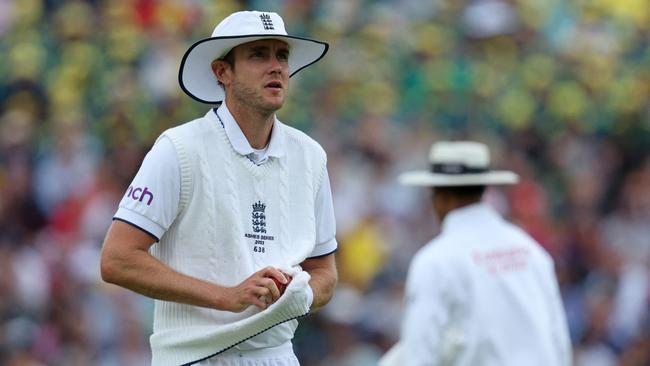
After that, the script went wonky. There was no swing for the birthday boy Anderson and no response from the pitch for Broad, and Australia seemed determined to be far more assertive in their second innings than they had been in their first. Warner met his old adversary with as much conviction as he had mustered all summer and the 50 partnership was posted in the 14th over, in the middle of Broad’s second spell.
Ben Stokes reverted to the tactics he used at Edgbaston, with an umbrella field in front of the batsmen, an indication of how much pace had disappeared from the pitch. Nevertheless, it was still a puzzle why Mark Wood was not introduced until the 33rd over, 40 minutes after lunch, and Ali was clearly operating below full capacity when brought into the attack, his right groin injury preventing him from pivoting in his action and therefore imparting enough spin on the ball.
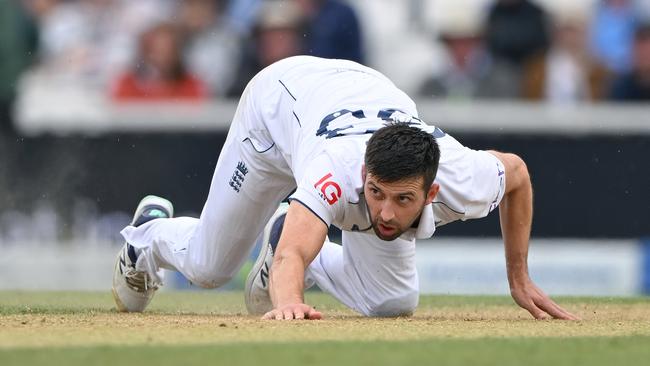
Was Stokes waiting for the ball to reverse swing before introducing Wood? Who knows, but with Wood under- utilised – Anderson had bowled ten overs to Wood’s three when the rain came – and Ali not fully fit, England looked as exposed in the field as they had all summer. Increasingly confident, Warner hit Anderson over the top and down the ground for four, which was followed two balls later by a beamer – and an immediate apology from Anderson – at which Warner flinched involuntarily, and somehow guided to third man for four more. Anderson has had a series to forget.
Both openers passed 50, Khawaja in 110 balls, Warner in 20 balls fewer. Wood’s belated introduction was greeted with a cheer from the crowd and immediate introduction of energy. Khawaja ducked into a bouncer and was forced to take a standing count, but looked untroubled against Joe Root’s off spin as his soft hands and ability to manoeuvre the ball with the spin and behind square brought three boundaries.
Only 40 overs were possible, and when play was abandoned the ground was sodden and deserted, a far cry from the joyous, uplifting scene at the start of play. The series has ebbed and flowed and oscillated wickedly and now heads into its final, uncertain day: England require ten wickets; Australia 249 runs and the ending to the Broad script is, as yet, unknown.
The Times



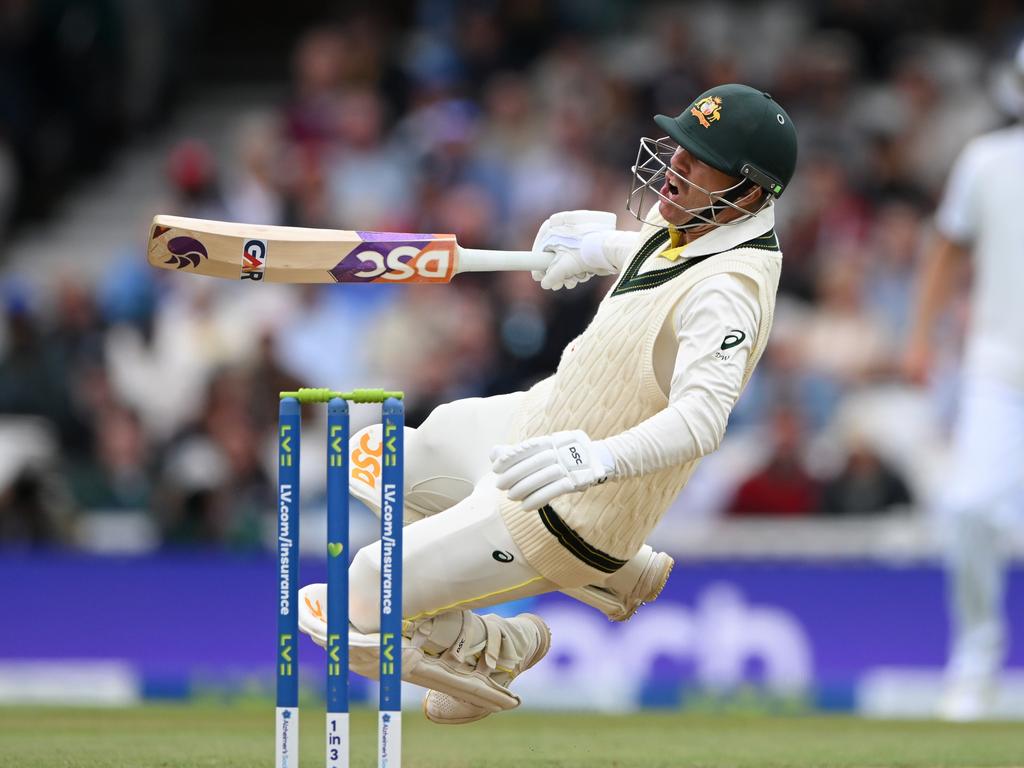




To join the conversation, please log in. Don't have an account? Register
Join the conversation, you are commenting as Logout